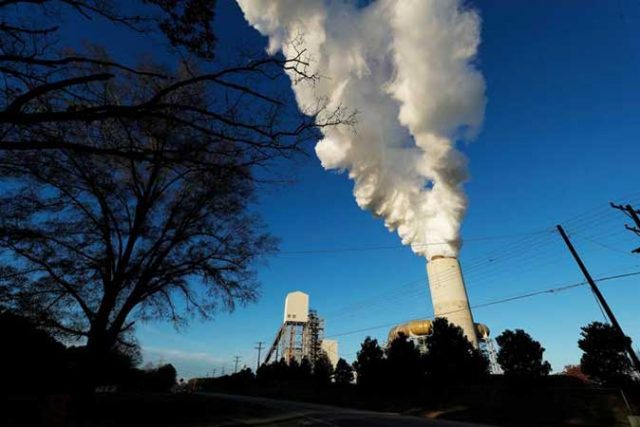Industry lobby bats for ‘clean coal’ role in achieving net zero
By Angelica Y. Yang – May 23, 2021 | 6:22 pm
from Business World

GOVERNMENTS must consider all available technologies, including advances in “clean coal,” in their strategies for achieving net-zero emissions, a UK-based coal industry group said last week.
“Our focus has to be on… deploying the best-available clean technologies, whatever they might be, including clean coal technologies, so that they can actually play their part in (reaching) our overall global community goal of net zero,” World Coal Association (WCA) Chief Executive Officer Michelle M. Manook told BusinessWorld in a video call on May 17.
“It shouldn’t be that we dismiss coal outright. We need to look at coal in terms of, how it can actually position itself for the next generation of clean, efficient plants,” she added.
The WCA defines “clean coal” as a new technology that reduces carbon dioxide emissions from the use of the fuel. The association positions emissions-reduction technology as an energy option that will allow sustainable economic development.
Ms. Manook said her group was advocating for the “phasing in of new technologies, and not the phasing out of the fuel.”
She added that the WCA supports renewable energy (RE), as well as diversity of fuels in the service of a country’s economic and environmental goals. She said full transition to renewables is not yet possible for many emerging economies.
“There’s been some really great work done in battery storage, but we’re still not going to be able to fully replace large-scale systems with 100% renewables…There will be a requirement in large systems for really reliable baseload and for many developing countries, that’s going to be coal,” Ms. Manook said, citing the intermittency of RE.
National Renewable Energy Board (NREB) member Alberto R. Dalusung III, on the other hand, contends that Philippines can be powered solely by renewables.
“We just need a grid that has the ability to have all of these technologies dispatched properly. Intermittency is not a problem at all assuming you’ve got a properly designed grid with flexibility,” he was quoted as saying in a statement issued by The Climate Reality Project Philippines over the weekend.
Mr. Dalusung said the shift to renewables would mean harnessing various RE sources and using technologies that ensure reliable power.
In the statement, Climate Reality Leader and former NREB Chairman Pedro H. Maniego, Jr. said the shift to flexible, distributed and decentralized RE generation can address stability and supply concerns. He also noted the declining costs of battery storage, which could address variability concerns.
COAL MORATORIUM
Asked to comment about the Philippines’ recent moratorium on new coal-fired plants, the WCA’s Ms. Manook said that it is still too soon to determine the impact of such bans on funding for coal overall.
“It’s probably too early to say… We are aware of the reports that some coal investors are withdrawing their funding, but we have to take a pragmatic view that many people will also replace that funding,” she said.
Ms. Manook said there will be “many new types of investors,” including those looking to the UN Sustainable Development Goals to guide their funding.
In November, the Institute for Energy Economics and Financial Analysis said that the Department of Energy’s ban on new coal-fired projects is estimated to bring in P1.45 trillion or $30 billion worth of investment in RE by 2030.



